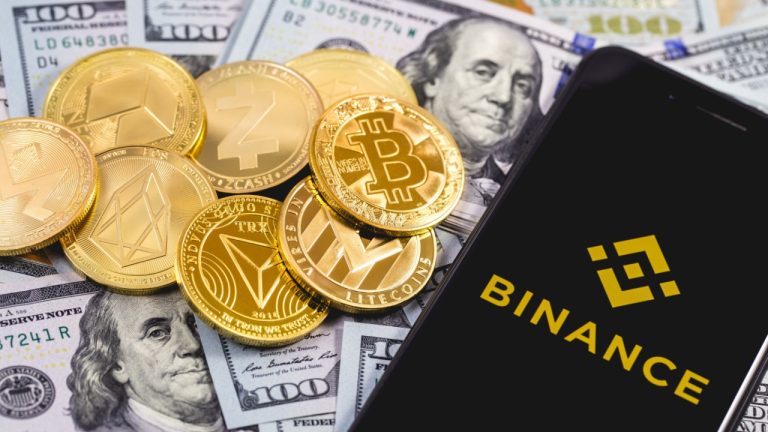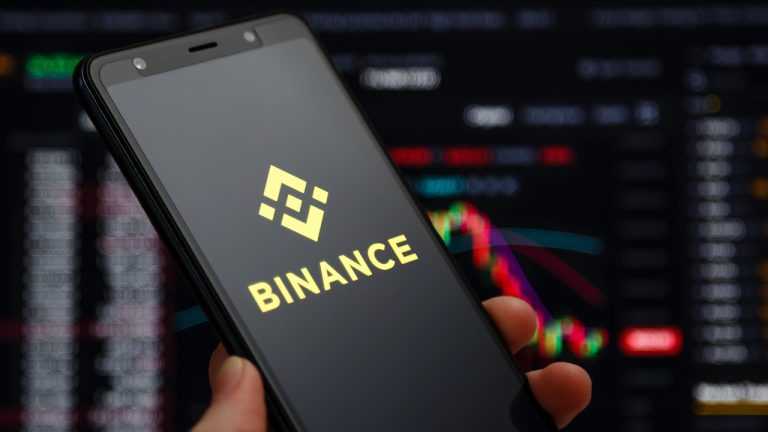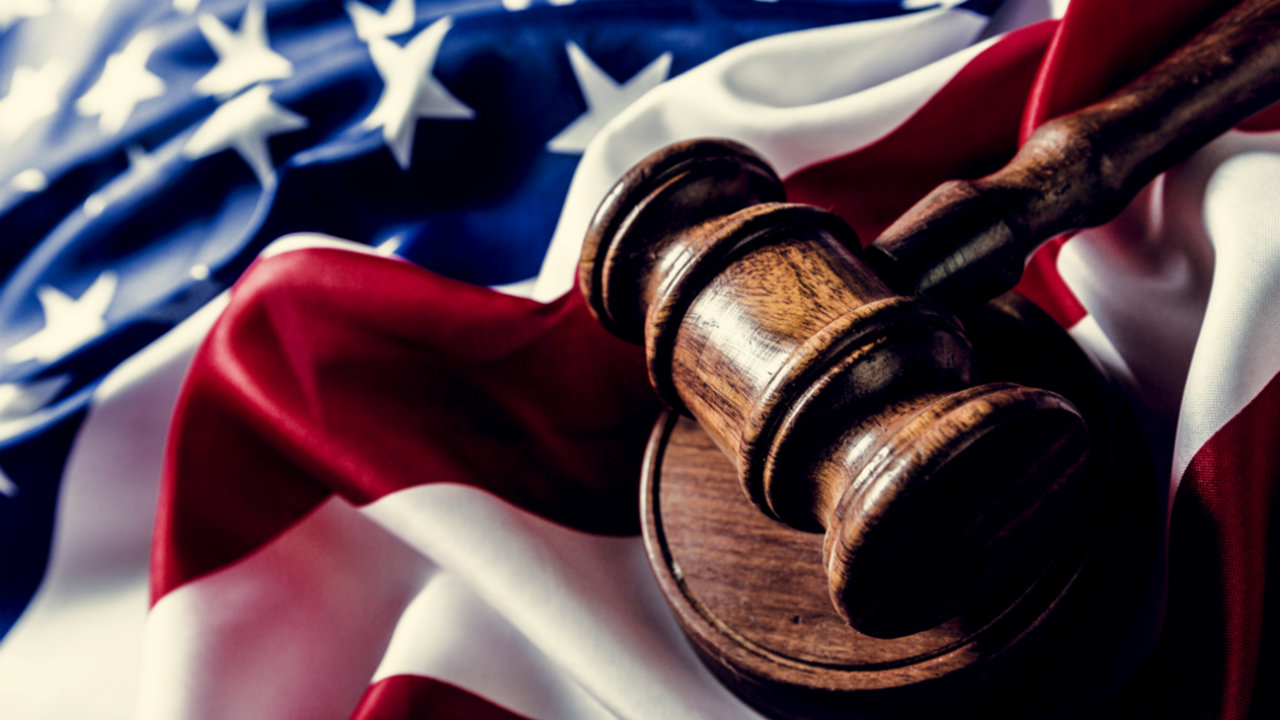
The Telegram founder’s unexpected arrest marks a significant development in the ongoing scrutiny of tech leaders amid growing legal challenges facing the crypto industry.
On Aug. 24, Pavel Durov, the CEO and founder of the messaging platform Telegram, was arrested in France, triggering widespread reactions across the tech and crypto communities.
The arrest came as a surprise to many, given Durov’s influential role in the emerging tech and decentralized communities and Telegram’s status as a key platform for the cryptocurrency sector.
French authorities have yet to disclose the specific charges, but the arrest is believed to be linked to ongoing investigations into data privacy and cybersecurity concerns, which have increasingly put tech giants under the legal microscope.
 The United States Court of Appeals has reversed a lower court’s ruling dismissing U.S.-based users’ damages claim against Binance. Aggrieved users will once again attempt to prove that their claims do not constitute an “impermissible extraterritorial application” of U.S. securities law. ‘Impermissible Extraterritorial Application’ of Securities Law The U.S. Court of Appeals has revived a […]
The United States Court of Appeals has reversed a lower court’s ruling dismissing U.S.-based users’ damages claim against Binance. Aggrieved users will once again attempt to prove that their claims do not constitute an “impermissible extraterritorial application” of U.S. securities law. ‘Impermissible Extraterritorial Application’ of Securities Law The U.S. Court of Appeals has revived a […]
Despite Brian Shroder resigning as CEO of the exchange’s US wing amid SEC and CFTC lawsuits, Binance CEO Changpeng Zhao claimed that the departure was normal.
Binance Holdings CEO Changpeng Zhao (CZ) has shot down speculation surrounding the departure of Binance.US CEO Brian Shroder, noting that he is “taking a deserved break" after a successful stint at the company.
Binance.US is a subsidiary of Binance Holdings, and the U.S. based exchange has seen a handful of other top executives recently step down from the firm amid lawsuits from the Securities and Exchange Commission and Commodities Futures Trading Commission.
In a Sept. 15 statement via X (Twitter), CZ urged people to "ignore FUD" around the recent shuffling of execs, as he suggested that Shroder was leaving the firm amicably after accomplishing everything he "set out to do when he joined two years ago."
"Under his leadership, Binance.US raised capital, improved its product and service offerings, solidified internal processes, and gained significant market share, all of which helped to build a more resilient company for the benefit of customers. We are grateful for his contributions," CZ said.
There has been some speculation regarding recent management changes at @BinanceUS. Brian Shroder is taking a deserved break after accomplishing what he set out to do when he joined two years ago. Under his leadership, https://t.co/hSHrrlF7o7 raised capital, improved its product…
— CZ Binance (@cz_binance) September 15, 2023
Binance is facing lawsuits from both the SEC and CFTC over several alleged violations of SEC and CFTC laws, including the alleged sale of unregistered securities and mishandling of customer funds. As part of its lawsuit, the SEC claimed that the US and international branches of Binance have illegally commingled funds between each other.
In the midst of this lawsuit, Binance.US announced on September 13 that it was laying off a third of its staff and that Shroder was leaving his position as CEO. On September 14, an additional two executive departures were reported as both head of legal Krishna Juvvadi and chief risk officer Sidney Majalya decided to quit the company. The departures fueled speculation on Twitter that Binance may be facing worse legal troubles than previously understood.
Related: Binance.US not cooperating with investigation, US SEC says in filing
Seemingly referencing the lawsuits in his X post, CZ also asserted that the crypto market “is in a different place now than it was two years ago,” as crypto firms face an “increasingly hostile regulatory environment.” In his view, the new CEO for Binance.US, Norman Reed, is the “right person” to lead the US exchange in this new era.
Binance is the largest crypto exchange by volume in the world. It has come under increasing criticism since the third-largest exchange, FTX, went bankrupt in November and FTX executives were charged with fraud. Critics say that Binance has not been transparent enough about its business practices and has not proven that it is solvent. However, CZ has brushed off these concerns, stating that the firm has “no liquidity issues” and that claims against it are unfounded.

Binance.US has lodged its defense ahead of the June 13 hearing on whether its funds will be frozen.
Binance.US has asked the court to deny the securities regulator’s proposed temporary restraining order against its assets, claiming that the move would “effectively end” its business.
In a June 12 filing, Binance.US slammed the Securities and Exchange Commission's emergency motion for a temporary restraining order on its business, calling it “draconian and unduly burdensome.”
The hearing on the temporary restraining order is scheduled for June 13 in the U.S. District Court for the District of Columbia.
SEC/Binance Newsflash: Binance Fights Back
— John Reed Stark (@JohnReedStark) June 12, 2023
Binance, CZ and the BAM Defendants just filed lengthy opposition pleadings to the SEC's emergency action. Find the links to two important pleadings below, which will give you a good idea of their defenses.
Should be an extraordinary… pic.twitter.com/qc5GRwHmjn
Binance.US argued that the restraining order would force the closure of BAM Trading Services Inc., the entity that provides crypto trading and exchange services for Binance.US, stating:
“The requested relief would primarily harm BAM’s customers, effectively put BAM out of business, and prevent BAM from defending itself in this litigation.”
Notably, Binance.US took aim at the regulator’s entire approach to pursuing legal action against it, asserting that “all of the SEC’s claims fail” because the regulator has not yet “identified a single security trading on BAM’s platform.” At the time of publication, the SEC has alleged that at least 68 cryptocurrencies are securities.
"The SEC suggests that it is a foregone conclusion that cryptocurrency is a security, but that is not the case. That numerous cryptocurrency exchanges, including BAM, have operated in the United States for years without interference by the SEC belies the claim that they are clearly covered by the securities laws," wrote the filing.
Furthermore, Binance.US said that it had made “significant efforts” to cooperate with an ongoing SEC investigation that began on Dec. 20, 2020. According to the filing, the results of this investigation have yielded more than 700,000 individual communications and “bespoke data” on its day-to-day operations.
Today we charged Binance Holdings Ltd. (Binance); U.S.-based affiliate, BAM Trading Services Inc., which, together with Binance, operates https://t.co/swcxioZKVP; and their founder, Changpeng Zhao, with a variety of securities law violations.https://t.co/H1wgGgR5ir pic.twitter.com/IWTb7Et86H
— U.S. Securities and Exchange Commission (@SECGov) June 5, 2023
The SEC first launched major legal action against Binance and its affiliates on June 5, accusing the crypto exchange and failing to register as a securities exchange and for allowing U.S. customers to trade cryptocurrencies it claims are securities.
Additionally, the regulator accused Binance CEO Changpeng Zhao (CZ) of being able to access Binance.US customer funds and alleged that he moved $12 billion in Binance’s funds through a privately-controlled entity called Merit Peak.
The next day on June 6, the SEC filed an emergency motion for a temporary restraining order against Binance, requesting that assets held on Binance.US be frozen until the crypto exchange could prove that the funds were not able to be moved by CZ or any other executive at Binance.
Related: Binance CEO CZ responds as data points to billions in exchange outflows
While both Binance and Binance.US have repeatedly denied the SEC’s claims on social media over the course of the last week, a joint memorandum submitted alongside the filing marked the first official comment made regarding the accusations.
It argued that the SEC is unable to “identify a single instance in which BAM customer assets were mishandled or misused.”
“Indeed, there is no ‘emergency’ here at all, other than the one manufactured by the SEC for its own purposes,” the memorandum added.
Magazine: Crypto regulation: Does SEC Chair Gary Gensler have the final say?

The billionaire is the latest to argue that the United States Securities and Exchange Commission hasn’t provided crypto firms with a registration process to follow.
Billionaire investor Mark Cuban has become one of the latest industry figures to call out the United States securities regulator for purportedly failing to provide cryptocurrency firms with a clear registration process.
The Shark Tank investor claimed in a June 11 tweet that no registration exists in the SEC’s “Framework for ‘Investment Contract’ Analysis of Digital Assets” document, making it “near impossible to know” what constitutes a security in the “crypto universe.”
“Unfortunately none of the elements presented in this page are part of the registration process. Which makes it near impossible to know, with or without an army of securities lawyers, what is or is not a security in the crypto universe.”
This is an SEC WEB PAGE about the howey test and tokens that often conflicts with what @SEC_Enforcement has said publicly. It's worth a read to get more clarity on what may or may not be a security https://t.co/m5E9V0Pd18
— Mark Cuban (@mcuban) June 11, 2023
Unfortunately none of the elements presented in this… https://t.co/iZ9Gn5SADK pic.twitter.com/kGHgsZkOaH
While a step-by-step outline isn’t provided, the document does briefly explain what is required for firms pursuant to U.S. federal securities laws.
Among the requirements included the need to disclose all information necessary for investors to make “informed investment decisions” and other “essential managerial efforts” that impact the success of the enterprise.
Meanwhile, Cuban noted that other sectors in the finance industry are receiving much more transparency from the SEC. Rather than labeling “stock loans” as securities or suing brokers and banks, they’re engaging in a “comments process,” Cuban explained.
“They should do the same thing with crypto as an effort to determine which aspects of crypto are securities and which are not,” he added.
Here is the SEC calling the stock loan industry "opague" and requiring transparency. Note, they are not calling "stock loans" a security as they are trying to do with the loaning of crypto assets. Nor are they suing the Stock Loan Departments of brokers/banks. They are going… https://t.co/0gSjAuAkWS pic.twitter.com/GfWm3m1jOB
— Mark Cuban (@mcuban) June 9, 2023
U.S. Senator Cynthia Lummis has also lashed out at the regulator for failing to provide a “robust legal framework” or at least offer “legal guidance” in some form for firms to comply with:
My statement on the SEC suing Coinbase, inc. https://t.co/5KNEM0IPSV pic.twitter.com/EgRIxrIcjj
— Senator Cynthia Lummis (@SenLummis) June 6, 2023
Last week, SEC Chair Gary Gensler claimed at the Global Exchange & Fintech Conference on June 8 that a registration process exists and that firms “know how to register.”
His comments were made in relation to Coinbase and Robinhood’s recent claims that they tried to register but the SEC rejected the attempt.
Related: SEC steps back from defining digital assets in new hedge fund rules
The SEC sued Binance on June 5 and Coinbase on June 6, alleging the exchanges broke various securities rules, most notably for purportedly offering cryptocurrencies that the regulator considers to be unregistered securities.
A total of 68 cryptocurrencies are now considered to be securities by the SEC.
Magazine: Crypto regulation: Does SEC Chair Gary Gensler have the final say?
 The world’s largest crypto exchange by trade volume, Binance Holdings Ltd., has been sued by the U.S. Commodity Futures Trading Commission. Binance CEO Changpeng Zhao has been named in the lawsuit and the charges claim the crypto exchange broke several trading and derivatives rules. The lawsuit also names Binance’s former chief compliance officer, Samuel Lim, […]
The world’s largest crypto exchange by trade volume, Binance Holdings Ltd., has been sued by the U.S. Commodity Futures Trading Commission. Binance CEO Changpeng Zhao has been named in the lawsuit and the charges claim the crypto exchange broke several trading and derivatives rules. The lawsuit also names Binance’s former chief compliance officer, Samuel Lim, […]
The CEO’s comments come after a CryptoLeaks blog post alleged that Ava Labs had a "secret pact" with a U.S. law firm to sue competitors in exchange for AVAX tokens and equity.
Ava Labs CEO Emin Gün Sirer has dismissed sensational allegations from CryptoLeaks that his company used litigation to “harm” competitors and fool regulators, labeling it as “conspiracy theory nonsense.”
Sirer made the comments in an Aug. 28 Twitter post to his 280,500 followers, referring to an Aug. 26 article from CryptoLeaks alleging the company formed a “secret pact” with U.S. law firm Roche Freedman to use the American legal system “gangster style” to “attack and harm crypto organizations."
How could anyone believe something so ridiculous as the conspiracy theory nonsense on Cryptoleaks? We would never engage in the unlawful, unethical and just plain wrong behavior claimed in these self-serving videos and inflammatory article. Our tech & team speak for themselves.
— Emin Gün Sirer (@el33th4xor) August 28, 2022
On Friday, CryptoLeaks published a series of candid videos from an unknown source purportedly showing U.S. Attorney Kyle Roche of Roche Freedman LLP detailing his partnership and relationship with Emin Gün Sirer and Kevin Sekniqi, the respective CEO and COO of Ava Labs.
CryptoLeaks claimed that Roche Freedman and Kyle Roche have a deal to provide Ava Labs with legal services in exchange for the AVAX tokens and Ava Labs equity, and would also use “litigation as a tool” to disrupt competitors and misdirect regulators such as the Security Exchange Commission (SEC) and Commodity Futures Trading Commission (CFTC).
The publication also said the videos of Roche suggest there was a tight-knit relationship between Roche and Sirer, which began in academia, and that they also moved into a co-working space together in Aug. 2019, around the time that the deal was made for him to provide legal services in exchange for token supply. Roche stated:
“Gün [Sirer] … we did a deal, where I agreed to provide legal services in exchange for a certain percentage of the token supply.”
Another video also shows Roche saying that they “used [litigation services] as a strategic instrument to support Ava Labs.”
“I sue half the companies in this space, I know where this market is going, I believe [I am] one of the top 10 [crypto experts] in this world… I’ve seen the insides of every single crypto company,” according to the video.
This is wild. Not sure if this is true, but assuming the videos are not deep fake...
— CZ Binance (@cz_binance) August 28, 2022
And of course, #binance was a target. We are not even a competitor.
https://t.co/R5wBtriEBY
Roche said in one video that he “makes sure that the SEC and CFTC have other magnets [Avalanche competitors] to go after,” adding that “litigation can be a tool to competition.”
Ava Labs CEO Emin Gün Sirer vehemently denied the allegations in the article, stating it was “conspiracy theory nonsense” and saying that Ava Labs would “never engage in unlawful, unethical and just plain wrong behavior.”
According to Roche Freedman LLP’s website, Roche employs at least 24 attorneys, with offices situated in New York City, Boston and Miami. Roche attended North Western University School of Law and co-authored “Why Bitcoin is booming” in the Wall Street Journal in Jul. 2017.
Roche Freedman LLP’s was recently involved in a high-profile lawsuit against Solana Labs, Solana Foundation, and Solana co-founder Anatoly Yakovenko on Jul. 1. 2022, claiming that Solana violated U.S. Federal Security laws by offering unregistered securities to U.S. investors.
About two weeks earlier on Jun. 15, Roche Freedman LLP also filed a lawsuit against Binance, claiming that the crypto exchange unlawfully engaged in the sale of UST to investors.
Cointelegraph reached out to Ava Labs for comment, but no immediate response was received.
 A lawsuit against Binance accusing the cryptocurrency exchange of selling unregistered crypto securities has been dismissed. The plaintiffs listed nine cryptocurrencies in the lawsuit. Binance’s Lawsuit Dismissed U.S. District Judge Andrew Carter dismissed a lawsuit against cryptocurrency exchange Binance Thursday. The motion to dismiss was filed by Binance and CEO Changpeng Zhao (CZ). The lawsuit […]
A lawsuit against Binance accusing the cryptocurrency exchange of selling unregistered crypto securities has been dismissed. The plaintiffs listed nine cryptocurrencies in the lawsuit. Binance’s Lawsuit Dismissed U.S. District Judge Andrew Carter dismissed a lawsuit against cryptocurrency exchange Binance Thursday. The motion to dismiss was filed by Binance and CEO Changpeng Zhao (CZ). The lawsuit […]